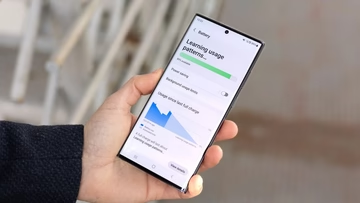
|
Getting your Trinity Audio player ready...
|
Pakistan has recently experienced a dramatic increase in the use of Virtual Private Networks (VPN) due to heightened internet restrictions. This surge highlights the ongoing challenges faced by users trying to maintain access to digital platforms in the country.
VPN Usage Soars by 330%
Since November 24, the demand for VPNs has skyrocketed, with a reported 330% increase in usage according to Top10VPN. Among the most affected services, Proton VPN noted a substantial jump in new sign-ups, with a 730% rise on Monday and an extraordinary 2860% spike on Tuesday. These statistics underline the growing reliance on VPNs as a response to government-imposed limitations on internet access.
The restrictions were implemented as part of a broader strategy to control communication ahead of anticipated protests. Platforms like WhatsApp, Bluesky, and others were blocked over the weekend, significantly impacting users. Bluesky, often seen as a competitor to Elon Musk’s X (formerly Twitter), faced restrictions just two days prior to the WhatsApp ban.
Accessibility Challenges Persist Despite VPN Use
Even with VPNs, many popular apps such as Facebook, Instagram, and WhatsApp remain inaccessible in several areas. These connectivity issues have caused frustration among users, particularly businesses and freelancers who rely on these platforms for daily operations.
PTA’s Deadline for VPN Registration
Adding to the complexity, the Pakistan Telecommunication Authority (PTA) has mandated the registration of VPNs by November 30, 2024. This requirement is expected to tighten control over VPN access, raising concerns about potential curbs on internet freedom and online privacy.
Critics argue that such measures could lead to significant challenges for freelancers and entrepreneurs who depend on VPNs for secure communication and accessing global markets. Additionally, this move has sparked debates over the balance between government oversight and individual freedoms.
Religious and Security Concerns Over VPNs
On November 15, a controversy arose when Pakistan’s religious spokesperson labeled VPN usage as “un-Islamic,” calling for its outright ban. While this statement was later clarified as a typo, the Ministry of Interior echoed similar sentiments. The Ministry urged a crackdown on “illegal VPNs,” citing their alleged use by terrorists for violent activities and financial transactions.
Such statements have fueled fears that restrictions on VPNs could escalate, further limiting users’ ability to safeguard their privacy and bypass censorship.
The Future of VPNs in Pakistan
The current climate surrounding VPNs in Pakistan reflects a growing tension between the need for security and the preservation of internet freedom. With the PTA registration deadline looming, the future of VPN access remains uncertain. Many fear that stricter controls could stifle freedom of speech and hinder the country’s digital growth.
For now, as Pakistan navigates these challenges, the demand for secure and reliable VPN services is likely to persist. However, whether these services will continue to provide a lifeline for digital access depends on the evolving regulatory landscape.
Conclusion
Pakistan’s increased reliance on VPNs underscores a broader struggle for digital freedom in the face of escalating restrictions. The upcoming regulatory measures and ongoing debates will play a pivotal role in shaping the internet landscape in the country.



